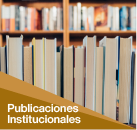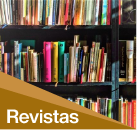Los Cuentos Andinos como Estrategia para Fortalecer La Expresión Oral en Estudiantes de 6° De Primaria, de La IE San Luis Gonzaga, Paucartambo, Cusco
Fecha
2025-09-22Autor
Davila Espinoza, Maricruz
Niño Quispe, Maribel
Nivel de Acceso
Acceso AbiertoMetadatos
Mostrar el registro completo del ítemResumen
Resumen
El siguiente trabajo se centra en evidenciar el valor de los cuentos andinos como estrategia pedagógica para fortalecer la expresión oral en castellano como primera lengua de los estudiantes de sexto grado de primaria, así como su aporte en la construcción de la identidad cultural y conexión con su sabiduría ancestral. Los cuentos andinos forman parte de la tradición oral de nuestros antepasados que están presentes en nuestras comunidades andinas las cuales son heredadas mediante la transmisión oral como una forma de dar a conocer las diversas costumbres, festividades, rituales y vivencias que poseen nuestros pueblos. Esta investigación propone la incorporación de cuentos andinos en los espacios de aprendizaje, ya que consideramos la importancia de trabajar los cuentos andinos a partir de los saberes y conocimientos locales de los estudiantes generando confianza en sí mismo y tener un mejor aprendizaje y por ende mejorar la expresión oral de los niños y niñas, a su vez contribuye en la identificación de su propia cultura a través de estas tradiciones orales. El enfoque de esta investigación es cualitativa con actividades que implican una investigación acción participativa donde los estudiantes son protagonistas de su aprendizaje, así como la participación de los padres, abuelos y sabios que permitieron la recopilación de saberes ancestrales y cuentos andinos. Se ha trabajado una experiencia de aprendizaje que conlleva a obtener un producto como son los podcast de cuentos andinos con la participación de los mismos estudiantes. La investigación muestra la importancia de incorporar la tradición oral en los espacios de aprendizaje no solo para fortalecer la expresión oral de los estudiantes sino también fortalecer su identidad cultural, ya que al realizar los podcasts de cuentos andinos no solo conocieron sus costumbres ancestrales, fue más que establecer una conexión con su cultura, por lo que es relevante seguir fomentando la importancia de la sabiduría ancestral desde la práctica docente. Abstract
The following work focuses on demonstrating the value of Andean tales as a pedagogical strategy to strengthen oral expression in Spanish as a first language among sixth-grade elementary school students, as well as their contribution to the construction of cultural identity and connection with their ancestral wisdom. Andean tales are part of the oral tradition of our ancestors, present in our Andean communities. These tales are inherited through oral transmission as a way of sharing the diverse customs, festivals, rituals, and experiences of our peoples. This research proposes the incorporation of Andean tales into learning spaces, as we consider the importance of working with Andean tales based on students' local knowledge and understanding, generating self-confidence and improving learning, and therefore improving children's oral expression. This research, in turn, contributes to the identification of their own culture through these oral traditions. The focus of this research is qualitative, with activities that involve participatory action research where students are the protagonists of their learning, as well as the participation of parents, grandparents, and wise men who allowed for the collection of ancestral knowledge and Andean tales. A learning experience has been developed that leads to the production of Andean story podcasts with the participation of the students themselves. The research shows the importance of incorporating oral tradition into learning spaces not only to strengthen students' oral expression but also to strengthen their cultural identity. By creating Andean story podcasts, they not only learned about their ancestral customs, but also established a connection with their culture. Therefore, it is important to continue promoting the importance of ancestral wisdom in teaching practice.
Keywords: Andean stories, oral expression, ancestral wisdom, Andean culture, cultural identity, education. Pisi Rimayllapi Willasayki
Kay qatiq llamk’ay qawarichikunmi cuentos andinos nisqa chanin kayninta qawachinapaq, huk estrategia pedagógica nisqa hina, suqta kaq grado primaria nisqa yachaqkunapi expresión oral nisqa kallpanchanapaq, chaynallataqmi yanapakuyninkupas identidad cultural nisqa hatarichinapaq, chhaynallataq ñawpa yachaykunawan tinkuchisqa kanankupaq yachay. Chay willakuykunaqa ñawpaq taytanchikkunamanta willakusqankuraqmi llaqtanchikkunapim kachkan. Kay willakuykunaqa simiwanmi willakun, hatun tayta mamanchikpa imaymana costumbre nisqakuna, raymichakuykuna, ritualninkunata, imaymana t’aqa kawsayninkunata willanapaq. Kay yachay maskayqa, yachay wasikunaman andino willakuykunata churanapaqmi yuyaychakun, yachaqkunaq llaqta yachayninpi, hamutayninkupi hap’ipakuspa, andino willakuykunawan llamk’ay ancha allin kasqanmanta, kikinkumanta hap’ipakuyta, aswan allin yachayta paqarichispa, chayraykum warmakunaq rimayninku allin kananpaq. Kaytaqmi, kay tradiciones orales nisqawan kikin culturanku riqsichikunanpaq yanapan. Kaytaqmi, kay tradición oral nisqawan kikin cultura nisqanku riqsichikunanpaq yanapan. Kay k’uskiyqa llamk’akun cualitativo nisqapi, imaymana t’aqa ruwayninkunataq investigacion de acción participativa nisqapi, chaypim yachaqkuna yachayninkupi protagonista nisqa kanku, chaynallataqmi tayta mamakuna, hatun tayta mamakuna, yachaysapa runakunapas yachayninkuta churarinku, paykuna kaqtinmi ñawpaq yachaykuna hinallataq andino nisqa willakuykunapas huñukuyta atikun. Huk yachay yachaymi ruwasqa kachkan, chaymi pusamun huk ruru ruwayta, ahinataq andino nisqa willakuy podcastkuna, kikin yachaqkunapa yanapakuyninwan. Kay k’uskiqa qawachin yachaypa espacio nisqakunaman tradición oral nisqa churayqa ancha allin kasqanmanta, manam yachaqkunaq expresion oral nisqa kallpanchanallapaqchu aswanqa identidad cultural nisqatawan kallpanchanapaq, chaymi podcast nisqakunata ruwaspankuqa, Andinokunapa willakuyninkunata mana ñawpaq kawsayninkumantallachu yacharqaku, aswanqa aswanmi karqa sapinkumanta hinaspa culturankumanta hukllawakuyta hatarichiymantaqa, chaymi allinpuni yachachiy ruwaymanta ñawpaq taytakunaq yachayninpa ancha allin kayninta kallpanchanapaq.
Chanin rimaykuna: Andino nisqa willakuykuna, rimaywan rimay, ñawpaq yachay, cultura andina nisqa, identidad cultural nisqa, yachay.







